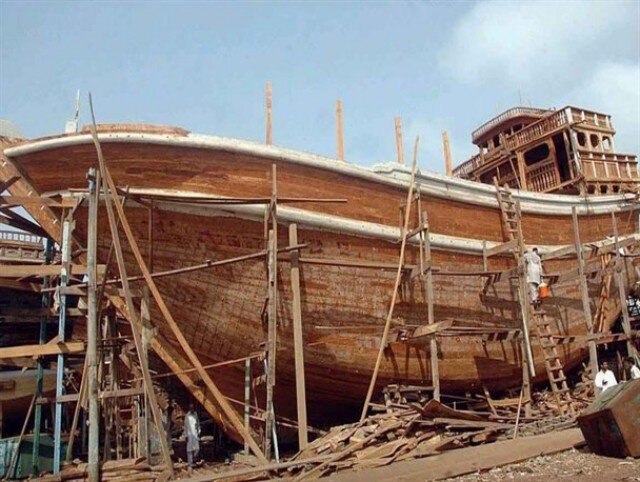Iranian elements re-endorsed as UNESCO Intangible Cultural Heritage

TEHRAN – Two Iranian elements of ‘Naqqali, Iranian dramatic story-telling’, and “traditional skills of building and sailing Iranian Lenj boats in the Persian Gulf’ have gained approval to remain on the UNESCO list for the Intangible Cultural Heritage.
The seals of approval were secured on Tuesday during the fifteenth session of the Intergovernmental Committee for the Safeguarding of the Intangible Cultural Heritage, which is running online from December 14 to 19.
“Iran is proud to have succeeded in protecting Naqqali as a very valuable Iranian element and it will be continuing to do so… I thank all the people, activists of intangible cultural heritage, and all related cultural institutions,” CHTN quoted Mohammad-Hassan Talebian, the deputy minister for cultural heritage affairs, as saying on Tuesday.
Regarding the case of traditional skills of building and sailing Iranian Lenj boats in the Persian Gulf, the official, who participated in the online session, explained: “I completely agree with this committee that the impact of tourism in the protection of the intangible heritage of this valuable element should be given much attention. We also pay a lot of attention to this special subject… we pay special attention to…”

“I would also like to express my thanks to all the captains, sailors, and mayors of Iranian ports on the northern shores of the Persian Gulf.”
The endangered Iranian elements along with other seven others from Brazil, Indonesia, Mali, Mongolia, Uganda, and the UAE had been scheduled to be reassessed during the event, according to the organizers.
The two elements were inscribed on the list during the sixth session of UNESCO’s Intergovernmental Committee for the Safeguarding of the Intangible Cultural Heritage, which was held in Bali, Indonesia in November 2011.
The List of Intangible Cultural Heritage in Need of Urgent Safeguarding is composed of the intangible heritage elements that concerned world cultural communities and the states’ parties should consider urgent measures to keep them alive. Inscription on this list helps to mobilize international cooperation and assistance for stakeholders to undertake appropriate safeguarding measures, according to the UN cultural body.
Naqqali is the oldest form of dramatic performance in Iran and has long played an important role in society from the courts to the villages. The performer – naqqal or morshed – recounts stories in verse or prose accompanied by gestures and movements, and sometimes, instrumental music and painted scrolls. Naqqali requires considerable talent, a retentive memory, and the ability to improvise with skill to captivate an audience. Naqqals wear traditional Iranian costumes, but may also put on ancient helmets or armored jackets during performances to help recreate battle scenes.
Naqqali was formerly performed in coffeehouses, tents of nomads, houses, and historical venues such as ancient caravansaries. However, a decline in the popularity of coffeehouses combined with new forms of entertainment has resulted in diminishing interest in naqqali performance. Besides, the aging of master performers and the decreasing popularity among younger generations have caused a steep drop in the number of skilled naqqals, threatening the survival of this dramatic art.
Iranian Lenj vessels are traditionally hand-built and are used by inhabitants of the northern coast of the Persian Gulf for sea journeys, trading, fishing, and pearl diving. The traditional knowledge surrounding Lenjs includes oral literature, performing arts and festivals, in addition to the sailing and navigation techniques and terminology, and weather forecasting that are closely associated with sailing, and the skills of wooden boat-building itself. The navigational knowledge used to sail Lenjes was traditionally passed on from father to son.
Specific music and rhythms also constituted inseparable parts of sailing in the Persian Gulf, with sailors singing particular songs while working. Nowadays, the community of practitioners is small and mainly comprises older people. Wooden Lenjes are being replaced by cheaper fiberglass substitutes, and wooden Lenj construction workshops are being transformed into repair shops for older Lenjes. The philosophy, ritualistic background, culture, and traditional knowledge of sailing in the Persian Gulf are gradually fading, although some of the associated ceremonies continue to be practiced in a few places.
AFM/
